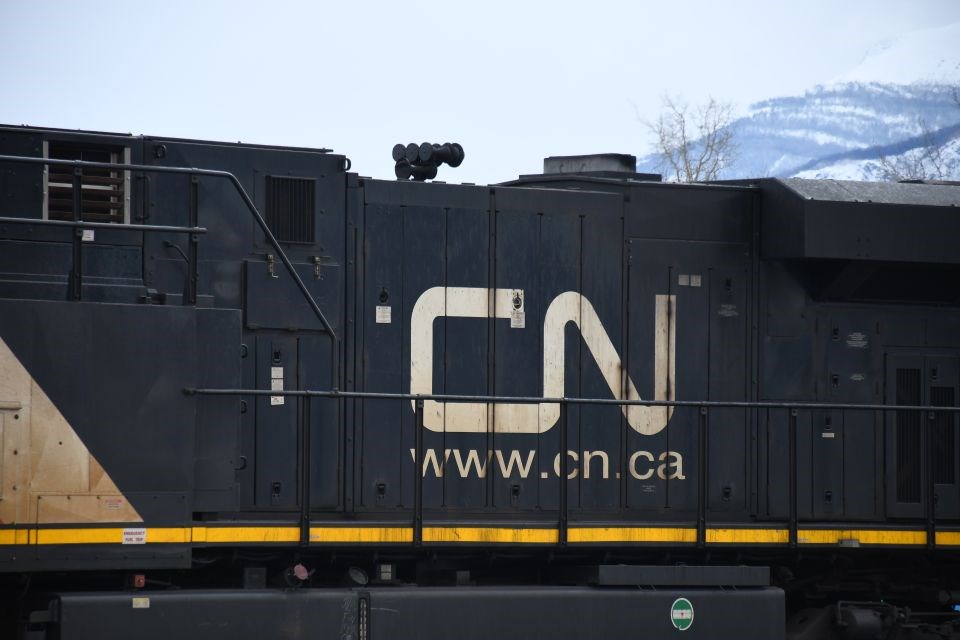JASPER – As CN is set to relocate its crew change terminal out of Jasper, some workers remain unsure if they will still be considered eligible residents.
Ray Donegan, general chairperson of Conductors-Trainpersons-Yardpersons (CTY) for CN Lines West, which is part of Teamsters Canada Rail Conference, said he did not believe CN has had more than limited contact with Parks Canada on this issue as of the end of May.
“It really is disheartening for me that they’re going about it all wrong, as far as I can see,” Donegan said, noting the frustration of Jasper workers.
Because of CN’s decision to relocate its crew change terminal from Jasper to east of Hinton in order to minimize train stops between Edmonton and Blue River, between 150 to 200 Jasper-based employees will be required to report for work in the Hinton-Dalehurst area.
In Jasper, however, residential leases restrict occupancy to eligible residents as defined in national park regulations. CN employees who are single or don’t have a spouse who works may no longer fall under this definition.
In a June 2 letter sent to employees, CN clarified that the only change to their duties will be the location at which they report as well as board and disembark from the train. It considered their primary employment remained within Jasper National Park, and employees will continue to perform work duties in Jasper as they are currently.
“As such, CN believes your connection to Jasper National Park will remain unchanged,” the letter stated. “For these reasons, our view is that the move of our crew change terminal to Hinton does not affect any applicable employee’s residency status in Jasper.”
It asked employees to inform the company if they receive any communication from Parks Canada challenging their residency.
CN declined to comment on the matter.
Donegan questioned why CN hadn’t gotten hold of Parks Canada to confirm its assumption in the letter.
"Going by the rational of CN's interpretation of the park rules, anyone who drives a truck along Highway 16 between Edmonton [and] Prince George would be entitled to live in the park," he said.
He acknowledged the decision to relocate fell under CN’s right to manage, but was frustrated by the lack of information as the union tried to mitigate the adverse effects.
“I think CN is pushing this ahead without really checking into the effect it’s going to have on the town or their employees that live there,” he said. “It’s really just sort of shooting from the hip.”
In a statement, Parks Canada did not confirm if CN employees would still be eligible residents but explained how the need-to-reside requirement is designed to ensure that housing is available for individuals who work in Jasper and eligible retirees while limiting recreational or second-home use.
“Parks Canada is committed to understanding how these changes may impact residents in relation to the need to reside requirements,” it stated.
In a June 3 council meeting, Jasper Mayor Richard Ireland reported that they recently met with CN officials in Ottawa where the company indicated its willingness to speak with Parks Canada and come to a solution that would result in its Jasper employees remaining eligible residents.
“We consider this to be certainly a benefit to those CN workers now living in the community,” Ireland said, adding how it would also benefit the community as a whole.
Council then moved to provide a letter to CN in support of its position.
Although CN previously indicated the relocation could come into effect as early as September, Donegan was skeptical it would happen that soon, noting the new tracks and bunkhouse still haven’t been built.
As for the effect on Jasper itself, he estimated that over 50 members owned property in Jasper, and CN workers helped sustain the local economy.
“It’s the railway workers living in Jasper that really contribute in the off-season,” he said. “I don’t know how businesses are going to stay afloat if we have these paycheques leaving town.”




